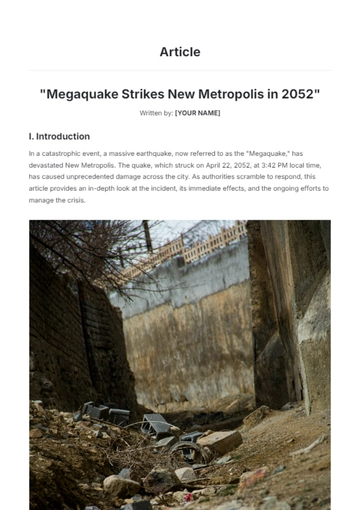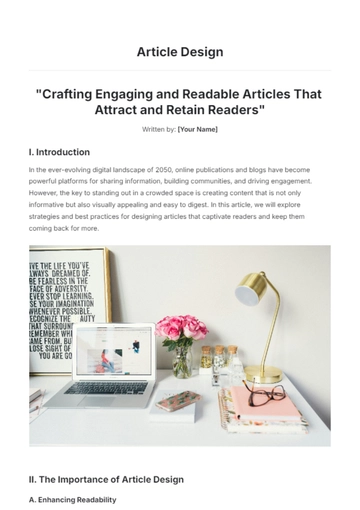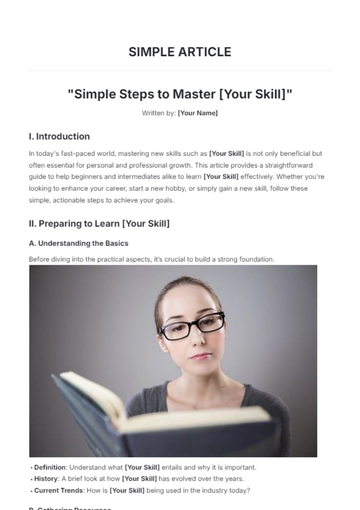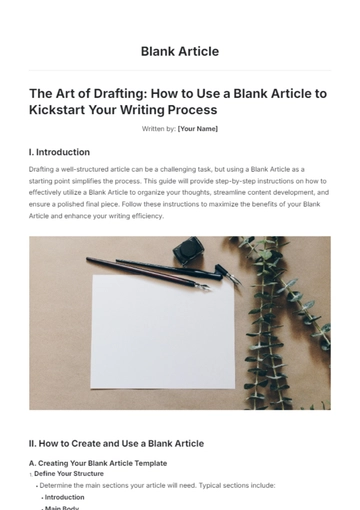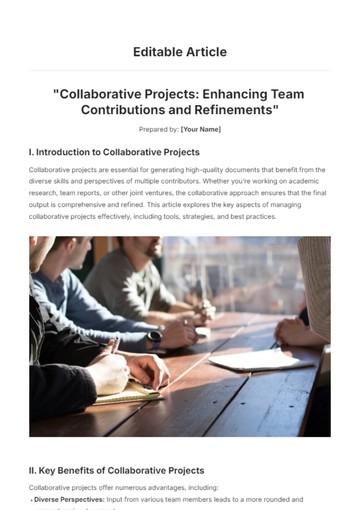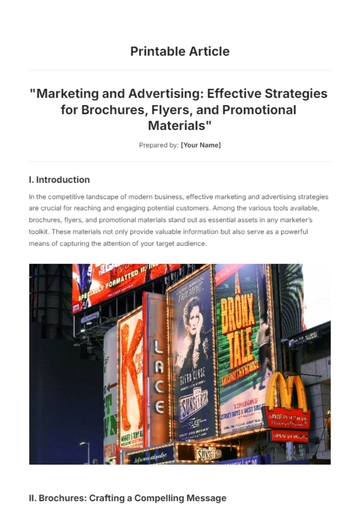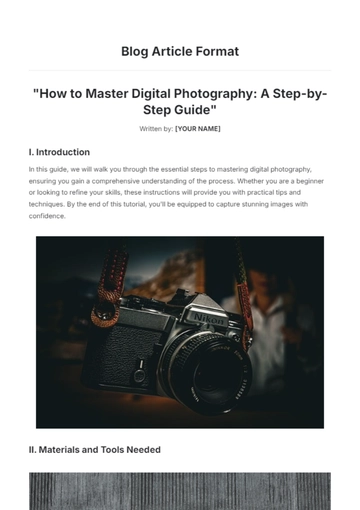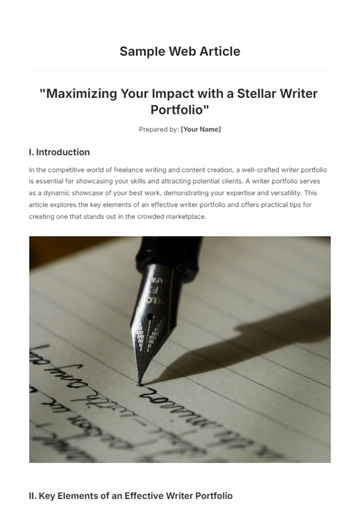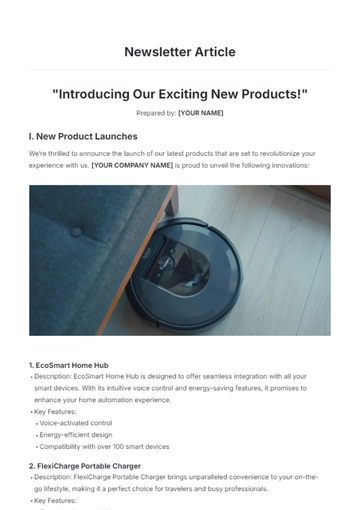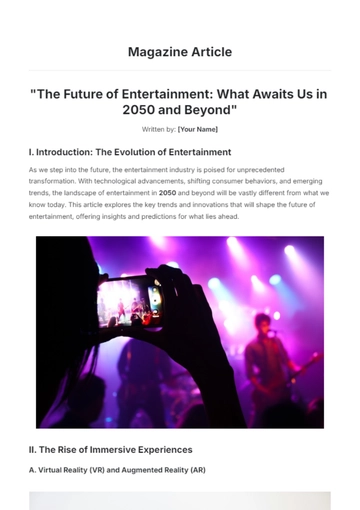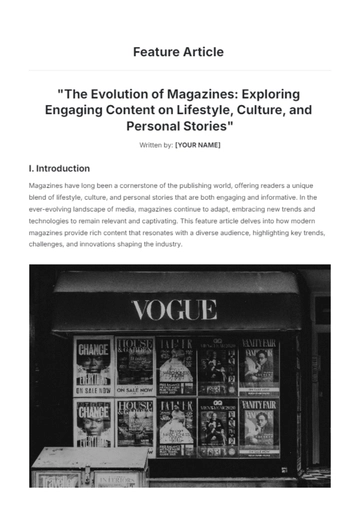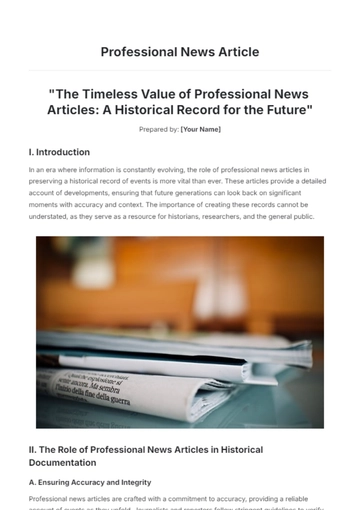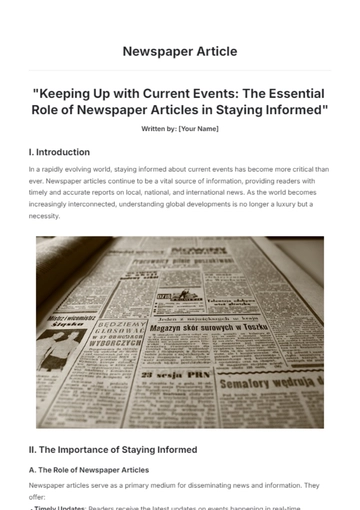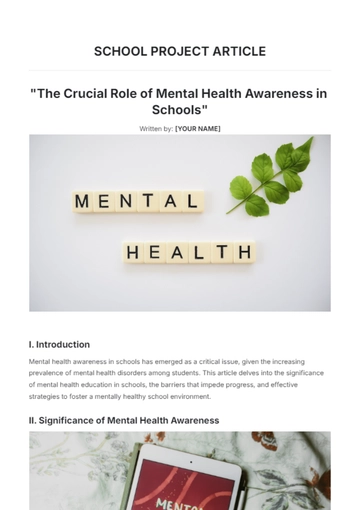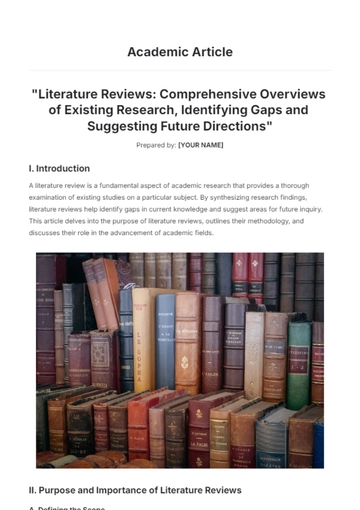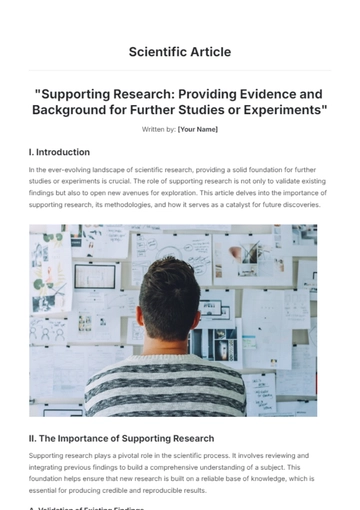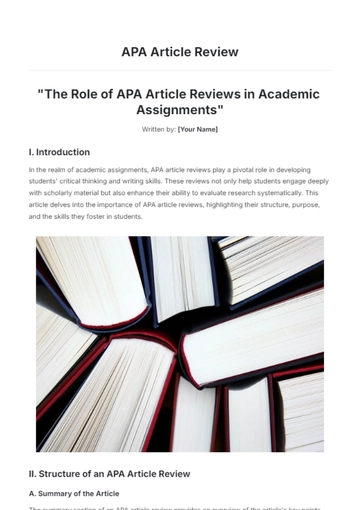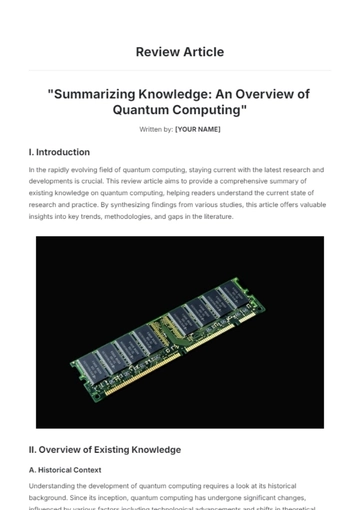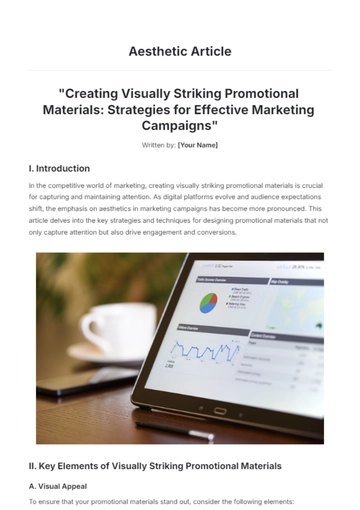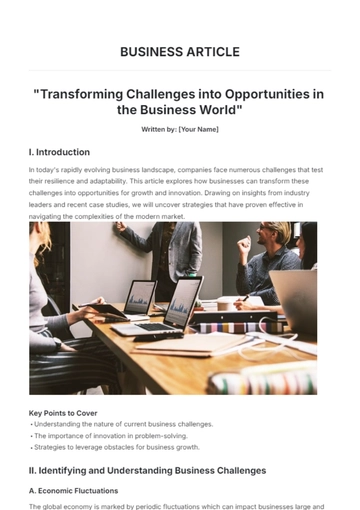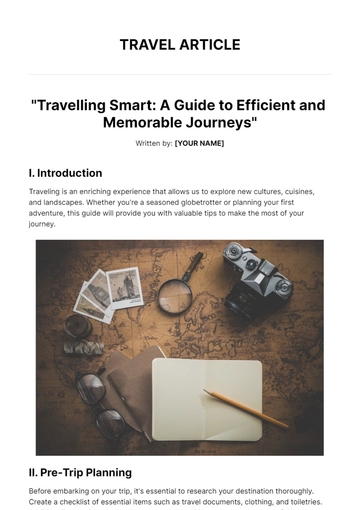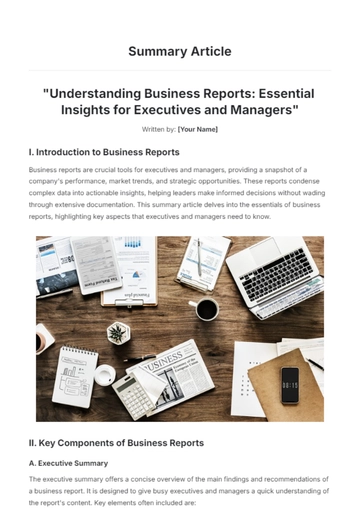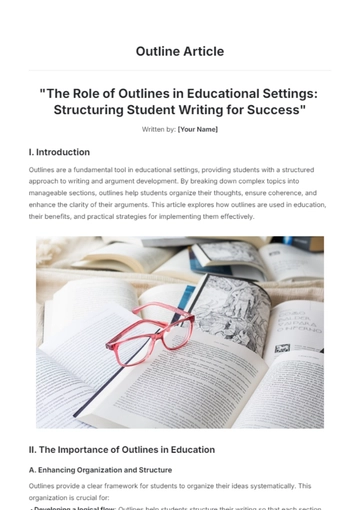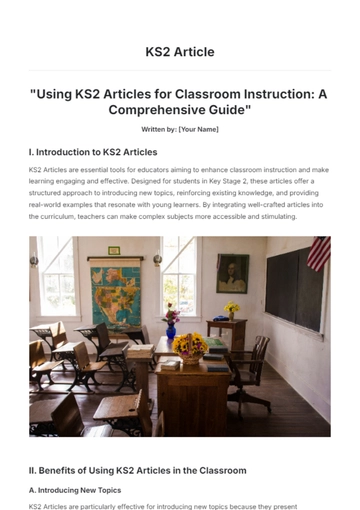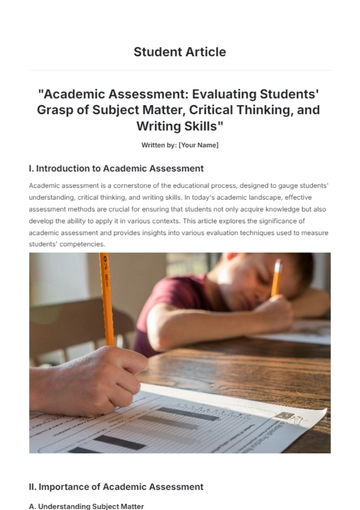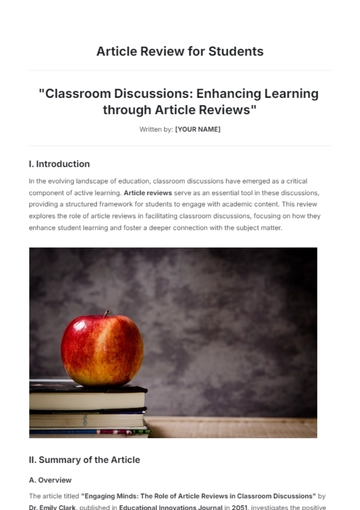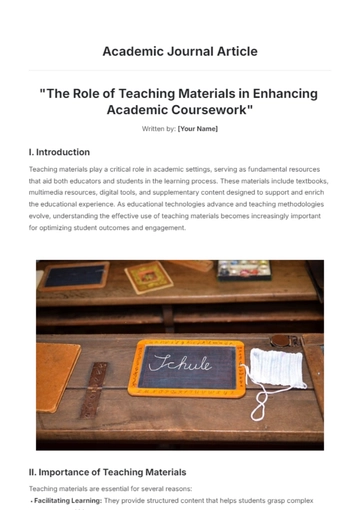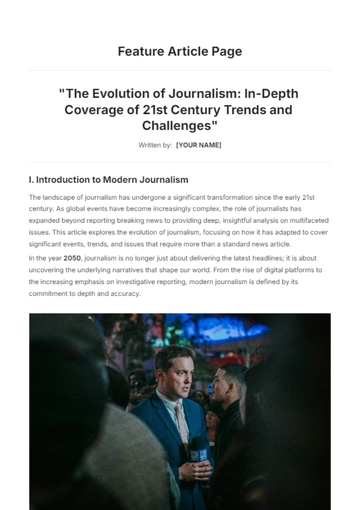Free School Article
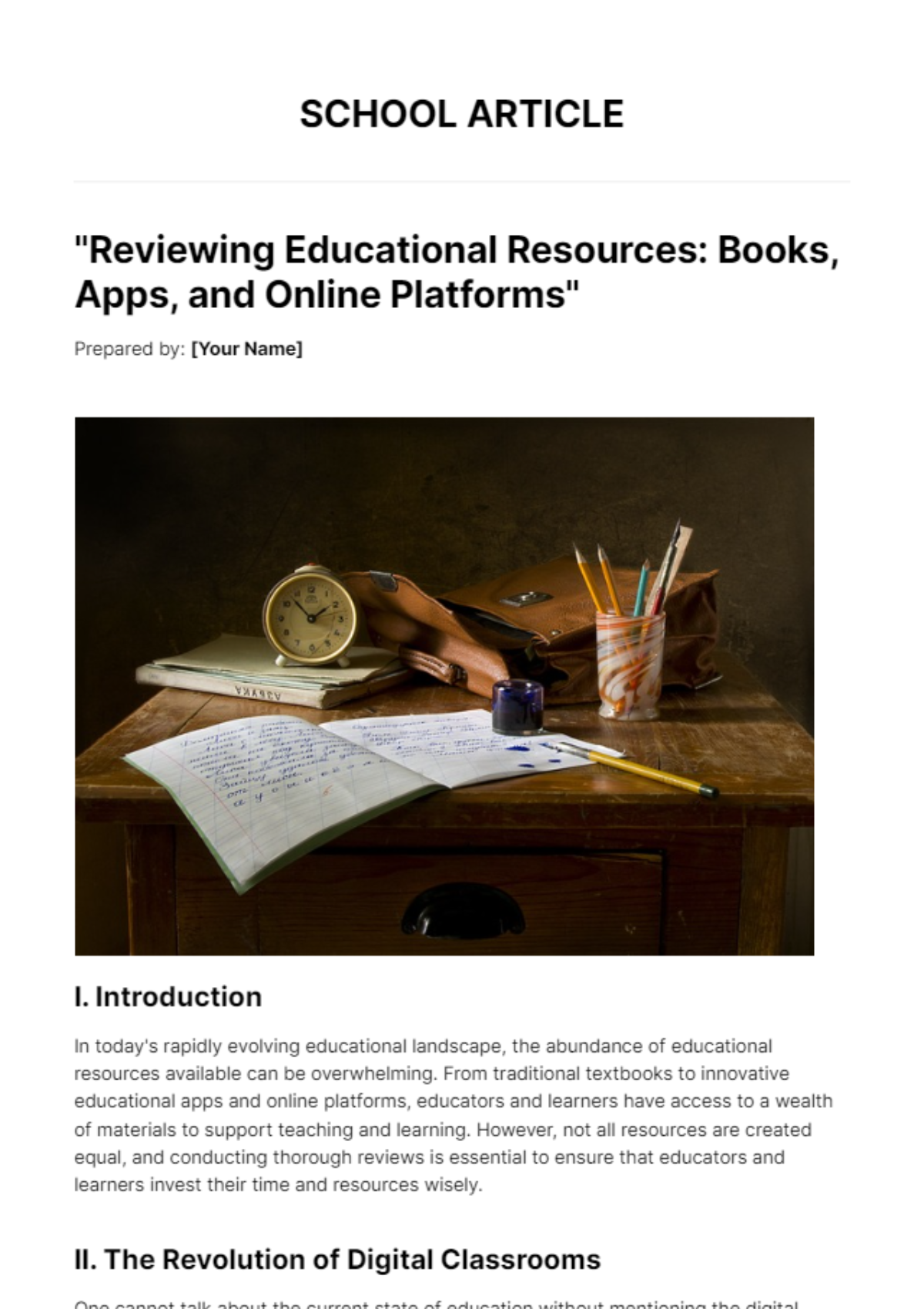
"Reviewing Educational Resources: Books, Apps, and Online Platforms"
Prepared by: [Your Name]

I. Introduction
In today's rapidly evolving educational landscape, the abundance of educational resources available can be overwhelming. From traditional textbooks to innovative educational apps and online platforms, educators and learners have access to a wealth of materials to support teaching and learning. However, not all resources are created equal, and conducting thorough reviews is essential to ensure that educators and learners invest their time and resources wisely.
II. The Revolution of Digital Classrooms
One cannot talk about the current state of education without mentioning the digital classroom. With tools such as [Specific Learning Management Systems] and [Interactive Learning Platforms], students and teachers are experiencing an unprecedented wave of educational opportunities. Here are a few key improvements:
![]()
Enhanced accessibility to resources and materials
Real-time communication between educators and students
Personalized learning experiences tailored to individual student needs
III. Importance of Reviewing Educational Resources
When it comes to selecting educational resources, quality is paramount. Effective learning materials can significantly enhance the learning experience, facilitate understanding, and promote engagement among students. Conversely, poor-quality resources can hinder learning outcomes and lead to frustration for both educators and learners. Therefore, conducting reviews of educational resources is crucial for:

Ensuring Alignment with Learning Objectives: Reviewing resources helps educators determine whether they align with the curriculum standards and learning objectives.
Assessing Pedagogical Effectiveness: Reviews enable educators to evaluate the pedagogical approach employed in the resource and determine its suitability for their teaching style and student population.
Identifying Accessibility and Inclusivity: Reviews help identify whether resources are accessible to students with diverse learning needs and ensure inclusivity in the classroom.
Maximizing Resource Utilization: By reviewing resources, educators can identify those that offer the best value in terms of cost-effectiveness, usability, and educational impact.
IV. The Future of Education with Emerging Technologies
As we look towards the future, certain technologies stand out for their potential to further transform education. Artificial Intelligence (AI), Virtual Reality (VR), and Augmented Reality (AR) are poised to deliver even more immersive and personalized learning experiences. Here’s what could be expected:
AI-driven personalized learning paths
VR field trips that offer virtual hands-on experience
AR tools for enhanced practical training
V. Challenges of Integrating Technology in Schools
Despite the optimistic outlook, the integration of technology in educational environments is not without challenges. Issues ranging from digital divide to cybersecurity concerns are prevalent. Below is an overview of the primary obstacles:
Ensuring equitable access to technology for all students
Maintaining data security and privacy of students and staff
Training educators to proficiently use new technological tools
VI. Criteria for Reviewing Educational Resources
When conducting reviews of educational resources, it's essential to consider a range of criteria to assess their suitability for educational settings. Some key criteria to consider include:
A. Content Quality:
Accuracy and relevance of information
Depth and breadth of coverage
Currency and timeliness of content updates
B. Pedagogical Value:
Alignment with learning objectives
Engagement and interactivity features
Adaptability to diverse learning styles
C. User Experience:
Ease of navigation and usability
Accessibility features for learners with disabilities
Compatibility with various devices and platforms
D. Support and Resources:
Availability of teacher guides and supplemental materials
Technical support and troubleshooting resources
Community and peer support for educators
VII. Conclusion
In conclusion, reviewing educational resources is essential for ensuring quality, effectiveness, and alignment with educational goals. By evaluating resources based on criteria such as content quality, pedagogical value, user experience, and support, educators can make informed decisions about which resources best meet their needs and the needs of their students. Ultimately, investing time in thorough reviews upfront can lead to more successful teaching and learning experiences in the long run.
About the Author:

[Your Name] is a seasoned educator and content creator passionate about improving educational experiences. With a background in [your field of expertise], [Your Name] has dedicated [number] years to researching and implementing effective teaching methodologies. As the founder of [Your Company Name], [Your Name] strives to empower educators worldwide through insightful articles, engaging workshops, and innovative resources.
- 100% Customizable, free editor
- Access 1 Million+ Templates, photo’s & graphics
- Download or share as a template
- Click and replace photos, graphics, text, backgrounds
- Resize, crop, AI write & more
- Access advanced editor
Transform mundane school assignments into polished masterpieces with the School Article Template from Template.net. This AI Editable Tool offers an array of customizable features, empowering students to effortlessly craft professional articles. From essays to research papers, this editable template streamlines the writing process, ensuring academic success while saving valuable time. Elevate your work with ease.
